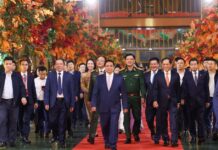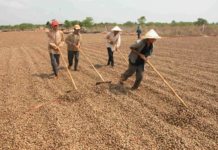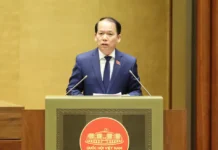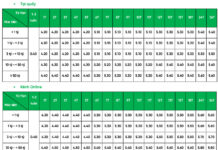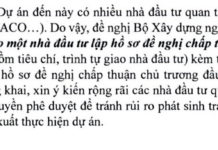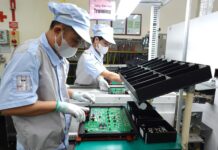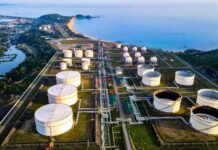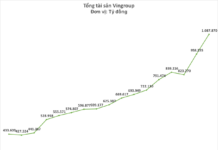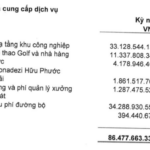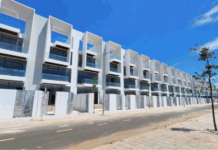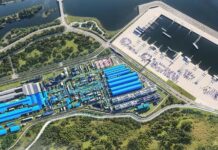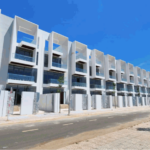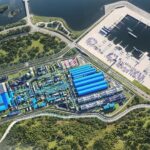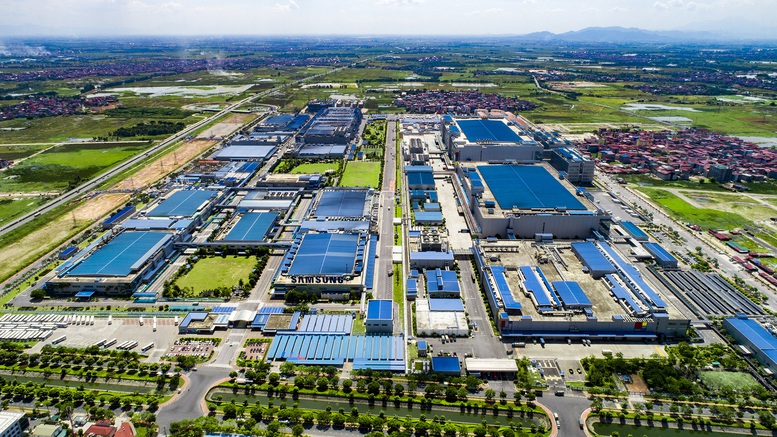
Ministry of Finance Proposes Amendments to Industrial Zone Infrastructure Investment Conditions
Industrial Zone Infrastructure Investment Conditions
In the draft, the Ministry of Finance proposes the following conditions for industrial zone infrastructure investment:
1. Compliance with regional and provincial planning, as well as the list of industrial zones in the province or the approved master plan of the economic zone for industrial zones within its boundaries. It must also align with the approved industrial zone planning according to urban and rural planning laws.
2. Industrial zones, except those specified in clause 3, must be phased if they meet the following criteria:
– Industrial zones exceeding 500 hectares must be phased, with each phase not surpassing 500 hectares.
– Industrial zones requiring the conversion of over 200 hectares of double-crop rice land must be phased, with each phase limited to 200 hectares of rice land conversion.
The Ministry of Finance notes that Government Resolution 115/NQ-CP dated September 5, 2022, implementing National Assembly Resolution 39/2021/QH15 on national land use planning, restricts the conversion of rice land, especially double-crop rice land, to non-agricultural purposes, particularly for industrial zones.
However, current regulations pose challenges for large-scale industrial zone infrastructure projects requiring significant rice land conversion. Phased investment approval may hinder capable investors, complicate land clearance, and disrupt synchronized technical infrastructure development and management, especially in multi-investor industrial zones.
Most industrial zones in the Red River Delta, North Central Coast, and Central Coast regions are developed on agricultural land, primarily double-crop rice fields (60-70% of the area). Restricting rice land conversion limits investment scale, reducing attractiveness and hindering infrastructure investor attraction.
For industrial zones under 300 hectares, phasing based on rice land use affects the remaining area’s investment and efficiency.
Under the 2024 Land Law, provincial People’s Councils hold the authority to approve rice land conversion.
Option 1: Cap rice land conversion at 200 hectares per phase, uniformly across regions.
Option 2: Allow provincial People’s Committees to determine rice land conversion limits per phase, not exceeding 200 hectares.
3. Industrial zones attracting cluster projects with a total investment of at least USD 2 billion or VND 45 trillion may have an initial phase of up to 1,000 hectares. Subsequent phases follow clause 2 regulations.
4. Allocate at least 5 hectares or 3% of industrial land for SMEs, supporting industries, innovative enterprises, and entities eligible for investment incentives under the Investment Law. Exemptions apply to eco-industrial parks, supporting industrial parks, specialized industrial parks, and high-tech industrial parks.
5. Ensure compliance with land use conversion conditions under land and forestry laws and related regulations.
6. At the time of submitting the pre-feasibility study report or investment registration, the average occupancy rate of established industrial zones in the province must be at least 60%, with exceptions for:
– Terminated or revoked industrial zones.
– Provinces with total industrial zone land under 1,000 hectares.
– Industrial zones in investment incentive areas or established economic zones.
– Eco-industrial parks, supporting industrial parks, specialized industrial parks, and high-tech industrial parks.
7. Approved housing and public utility planning for industrial zone workers.
8. Expansion of existing industrial zones by the same investor or using public funds requires:
– At least 60% occupancy and operational environmental infrastructure in the existing zone.
– Shared technical infrastructure between the existing and expanded zones.
– Completed housing and public utilities for workers in the existing zone.
Conditions for Industrial Zone Infrastructure Investors
1.1. Investors must meet real estate business conditions, land allocation criteria, and land use conversion requirements under land, forestry, and related laws.
Foreign-invested economic organizations must also meet land allocation and use conversion conditions.
2.1. For tender-based investor selection, evaluation criteria include:
– Investor capacity based on clause 1.1 conditions.
– Investor experience based on project scale, progress, and performance.
– Technical criteria based on approved industrial zone planning and investment decisions.
– Financial and commercial criteria based on investment decisions and related laws.
The Ministry of Finance is seeking feedback on this draft via its e-portal.
Unprecedented Reasons Surface as Multiple Provinces Fail to Utilize ODA Funds
As of October 14th, the disbursement rate of foreign-funded public investment projects across ministries, sectors, and localities stands at a mere 18.68%. Official Development Assistance (ODA) projects are facing significant bottlenecks, partly due to the consolidation of provinces and the implementation of the two-tier government model.
What Does the Ministry of Finance Say About the Proposal for a ‘Single Electricity Price’?
In response to voter petitions in Lâm Đồng province advocating for the elimination of value-added tax (VAT) on electricity and the implementation of a uniform electricity pricing mechanism to ensure fairness among user groups, the Ministry of Finance highlights several inconsistencies, emphasizing that electricity is a uniquely regulated commodity.


